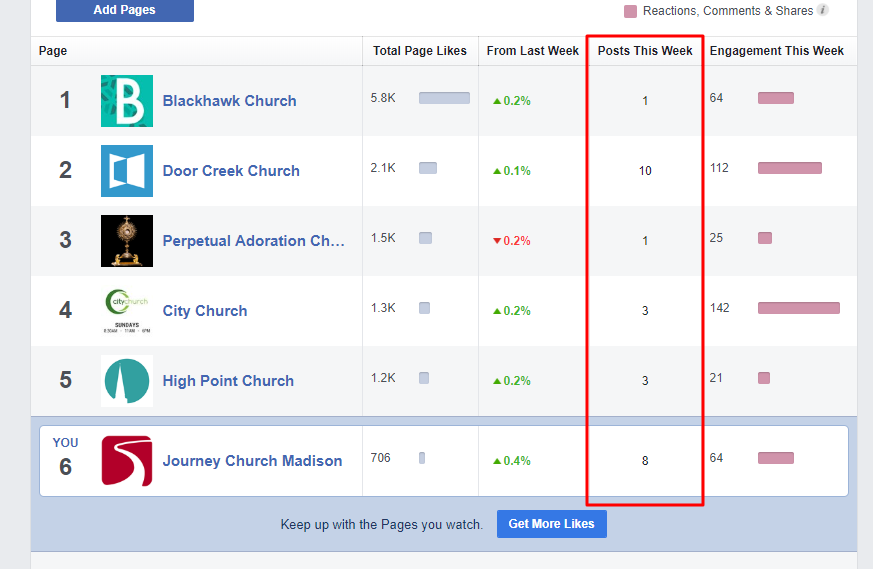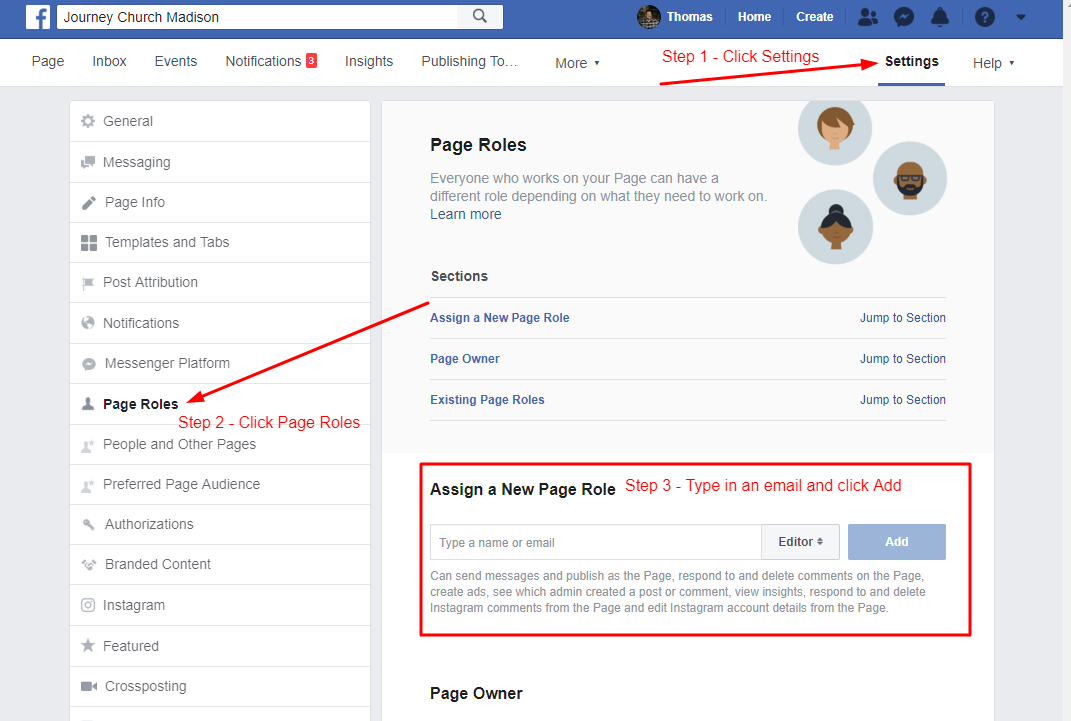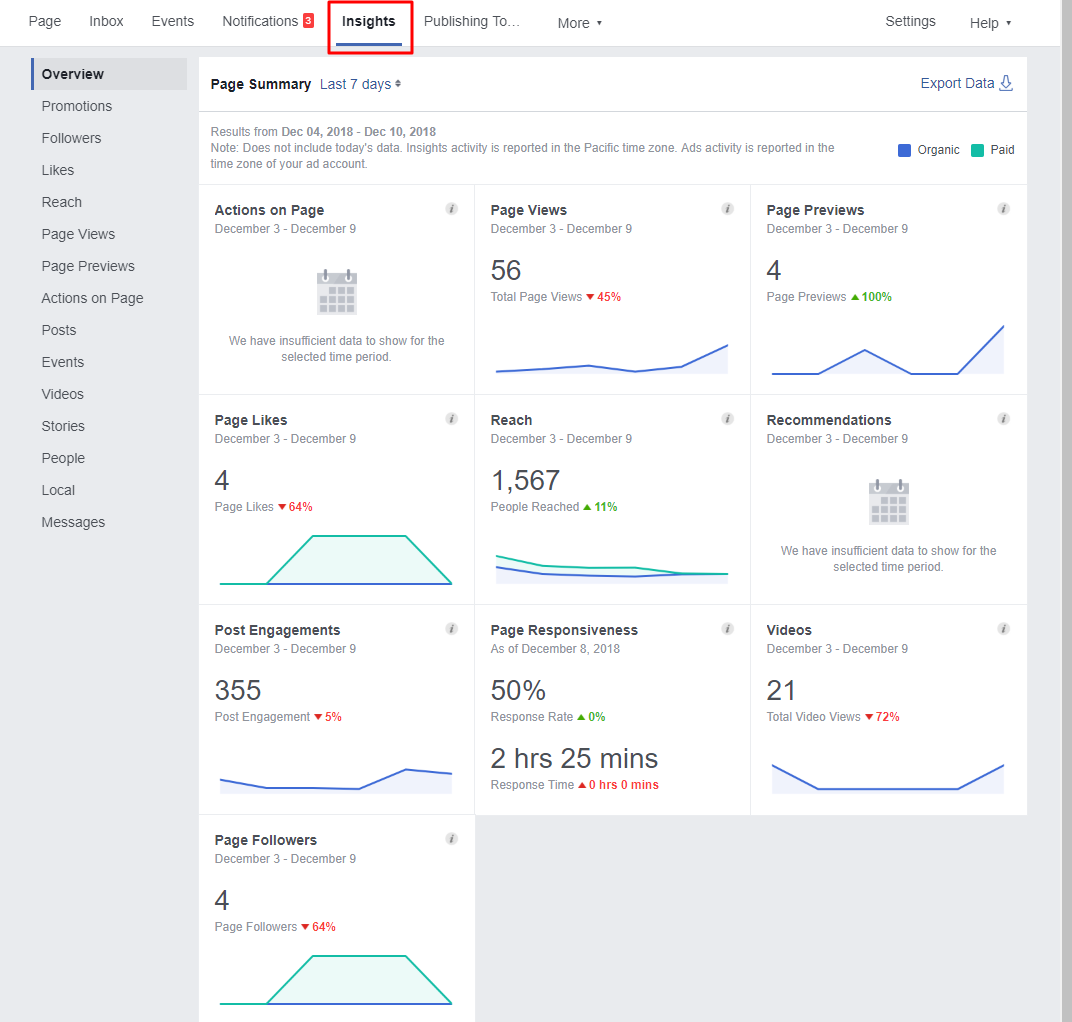You already know Facebook has one of the most massive audiences online, but for some reason, your church Facebook page isn’t attracting many people at all.
What’s going wrong? You post content, share upcoming events and more, but still, you only have a handful of members who regularly check in.
Before you give up on Facebook, give your Facebook strategy an overhaul and try again. You may just need a few tweaks to make this social media giant one of the best ways to expand your reach.
Why You Should Stick It Out
You might think Facebook isn’t worth it if you spend a few months using the platform and nothing happens. Remember, you’re competing against millions of other pages. Despite how eager you are for your church Facebook page to go viral, it may take a while. However, you should still see growth, even if it’s slow at first.
According to a LifeWay study, 84% of churches actively use Facebook as one of their main communication platforms. This means the platform works, but it’s all in how you use it. Besides, Facebook boasts 2.27 billion monthly active users as of September 2018. That’s just too big of an audience to ignore when it comes to expanding your church’s reach.
Need another reason to stay? Social media, Facebook, in particular, has the power to sway how people perceive faith. If you want to get the truth out there and help guide people on the right path, your church needs to have a voice on the platform. So, the takeaway – stick with it and you’ll start to see growth as you make some important changes.
Facebook Strategy? What’s That?
First off, do you have a Facebook strategy or are you just posting haphazardly? Don’t be embarrassed if you just kind of post like you would on your personal Facebook account. After all, most church leaders don’t think of social media in a business sense.
However, you have to think like a business owner. Your church has a strategy, right? You have goals, schedules, routines and so on. Why not do the same for Facebook since it’s such a powerful marketing tool for bringing in new members, engaging current members and increasing online tithing?
If you’re not sure where to start, check out our guide to creating a social media strategy. After that, come back and see how to further transform your church Facebook page.
The Two Biggest Mistakes
While there are numerous mistakes your church or any business could make, it usually comes down to these two:
- Rarely posting or posting inconsistently
- Posting the wrong type of content
For the first one, this is usually due to thinking of a Facebook page as a personal profile. You post whenever you feel like it or just when you have major news to share, like an upcoming event. If you don’t give people a reason to engage with your page, they stop following it or it gets buried in their newsfeed and they overlook those rare posts.

The second one is just as bad and actually lumps together a multitude of sins, such as:
- Sharing personal political beliefs
- Losing your temper
- Preaching versus inspiring (feels more like being talked down to with no hope of redemption)
- Marketing only, such as constantly asking for donations or only posting when there’s an event
- Airing dirty laundry
- Only pointing out what people are doing wrong
The list could continue, but you get the idea. Your Facebook content should inspire people, make them think, help guide them, inform them and encourage them to further explore their faith.
Stop Doing It All Alone
A common issue that causes church Facebook pages to miss the mark is trying to do it all alone. You know how you’re not at your best when you’re tired and overwhelmed? Facebook users can tell when you’re overwhelmed with your Facebook page. It comes across in your posts and replies to comments.

How to Add Another Admin To Your Church Facebook Page
You don’t have to manage your page all alone. This shouldn’t be on just one person’s shoulders. At the very least, you should have two people to cover a wider range of time for responding to comments and messages. Ideally, a small team (for smaller churches) or a larger team (for larger churches) works best to brainstorm ideas, proofread posts (for content and context) and stay active consistently.
Train Everyone Who Helps
Before you just ask for volunteers and let them run wild, have strict social media standards. The wrong post or comment can ruin your church. Need proof? Entrepreneur lists seven major social media fails in 2017 that damaged major brands’ reputations. Make sure everyone knows what is and isn’t acceptable and how to handle a mistake if it happens.
Keep The Content Coming
As you can guess, with billions of active users, there’s more content available than anyone could ever consume. However, if your church isn’t posting regularly, you just get shuffled around and lost in the mix. However, this doesn’t mean you should just flood your followers with content.
Facebook changed how they show brand content, including your church Facebook page, in early 2018. Volume isn’t what’s important. It’s value. Your church should post valuable content regularly. If this means two posts a day, that’s perfectly fine. The idea is to keep the content coming on a regular basis to encourage regular interactions. This is what helps your page gain popularity and show Facebook that people do value your brand.
Get Creative With Your Content
To further help your Facebook content show up and increase engagement, you’ll have to get creative with your Facebook content strategy. Not sure what to post outside of just text and images? Crello provides 15 highly popular types of posts that users love. You also want content that’s engaging enough for your followers to share, which is typically a picture (43%) or links to articles they enjoy (26%).
Now that you have an idea about content types, it’s time to not just mix up what types of content you share, but get creative with it with ideas, such as:
- Having fun with Christian humor (everyone loves sharing something funny)
- Original music
- Links to kids’ story time on your church’s blog (create short stories with a moral)
- Polls (these can be on almost anything)
- Have daily prayer requests
- Pose a question of the day with suggested reading
You don’t have to do all of these or even any of these. Feel free to create your own unique content strategy. What you should learn from this is you should create regular themes of content. For instance, if you want to share Bible verses, you might share one daily or just on Monday, Wednesday and Friday. If you do humorous posts, you might have laugh-out-loud Tuesdays. The idea is to create themes that engage your particular audience and keep them coming back and sharing your content.
Create A Sharing Strategy
Notice how we keep coming back to the word “strategy”? It’s a crucial part of having a successful church Facebook page that helps your church meet your goals.
Remember how you don’t have to do everything on your own when it comes to Facebook? You don’t have to create every post from scratch. Odds are, you share content from other people on your personal page, right? Do the same with your church’s page. Find content from other churches, Christian leaders, Christian Facebook groups (great for memes) and other relevant sources.
In fact, your followers will love getting content from multiple sources all in one place. Plus, it ensures your posts aren’t always coming off as marketing only. This also goes back to creating valuable content. When you don’t have time to create a post, share one from someone else. To make this easier, create a list of sources to pull content from.
Don’t Guess, Analyze
How much do you know about how your Facebook page is performing? You probably know how many followers and likes you have, but what else? Facebook has a feature called Insights that allow you to see how your church Facebook page is performing. This allows you to quickly see what types of posts are the most popular, how many people are seeing your posts and much more.

Use Insights On Your Church Facebook Page
It’s a valuable tool to help you improve your page. Use the data to learn things like what times of day get the most engagement and what types of posts are shared most often.
If you want more in-depth analytics, Facebook does offer omnichannel analytics, which isn’t free, to learn more about how people interact with your church on social media, mobile, your website and more.
Spread The Word Via Ads
On the topic of spending more than just time on Facebook, your church Facebook page may be missing the mark simply because no one knows about it. Despite how active you might be in posting, Facebook doesn’t show all your page content to all followers unless they specifically request it. Even then, they’re likely not seeing everything unless they visit your page.
To reach more people, it may be time to invest in Facebook Ads. Don’t worry, ads are affordable for every church budget. Even if you only have $5 a day, you can improve your Facebook page engagement with ads. It’s important to determine how much your church wants to spend before investing.
However, Facebook Ads are ideal for growing a new page or further spreading the word about major upcoming events. You can localize the audience so they’re only shown to people in your church’s local area. Of course, there are ample criteria to ensure your ads are only shown to your target audience, including locally and globally.
Give Your Audience A Voice
Unless your page’s followers simply can’t behave, give them a voice. Ask open-ended questions and encourage them to comment. You want to ensure you have an engaging page where followers feel free to participate in conversations.
This is also a great way to see how you can improve. You may want to consider posting a question about what followers want from your page and what they like/don’t like. After all, your page is for them and it’s important to know what they want and need.
Post Content For Everyone
If you only want to use your church Facebook page for members, then keep your content focused on what your members would need most. If you want to gain new members or expand your online reach, ensure you’re posting content for everyone.
A common reason church Facebook pages fail is because they exclude people. For instance, you might only post-church announcements, which isn’t going to attract any non-members. Create a mix of content that’s useful for your members, potential members, and the online audience.
It’s always okay to make announcements that only apply to your members, such as a call for volunteers. You’ll want to consider using the Events feature to make announcements about upcoming events to ensure they stay visible to everyone.
However, mix in shared content from other sources, inspirational messages, Christian memes, and Bible study suggestions. All of this helps keep your entire audience engaged, increases sharing and grows your Facebook page.
Don’t Leave People Waiting
One of the worst ways to ensure your church Facebook page misses the mark is to ignore your followers. If someone asked a question in church, you’d answer as quickly as possible. The same thing should apply to Facebook. While you can’t be on the platform 24/7, you should list active hours on your Facebook page.
This is where volunteers are incredibly helpful. Have a few volunteers to help respond to comments and questions. Just knowing your church is actively engaging with followers encourages people to stick around. In turn, they also share more content, which leads new people back to your Facebook page.
Go Beyond A Facebook Page
Of course, to make your church Facebook page even better, you should have an online presence besides just Facebook. For instance, you should have a church blog where you create useful content. This gives you something to share on Facebook that gets shared by your followers. Your church website allows you to provide even more details about your church, such as offering online sermons.
Give your Facebook page a second chance with a new strategy. You don’t have to miss the mark anymore. Just pay attention to what your audience wants and use the advice above to create a strategy that grows your reach and church.
Want the perfect complement to your church Facebook page? Start with an engaging church website to provide even more to your members and online followers.




